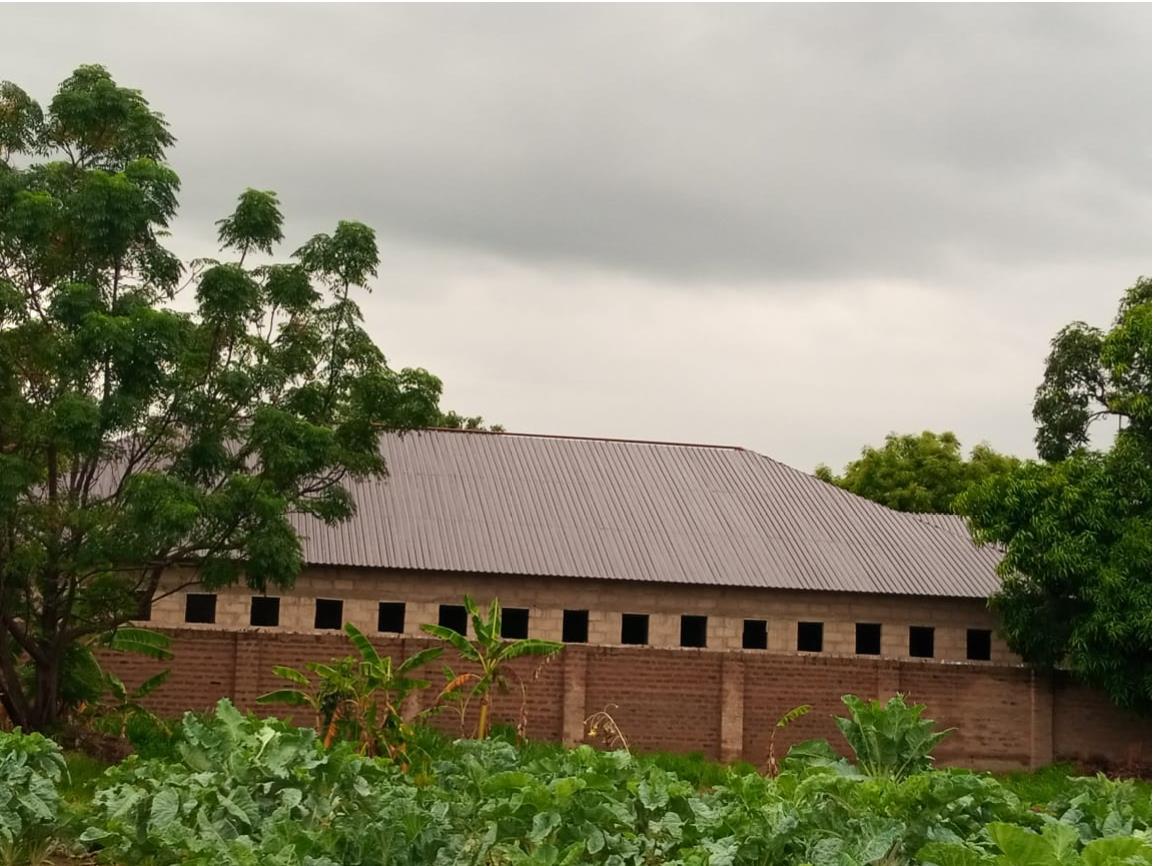
TANZANIA: Secondary school completes construction project for new bathrooms
Don Bosco Didia Secondary School completes construction project for new bathrooms thanks to funding from the Salesian Missions ‘Clean Water Initiative.’
NEW ROCHELLE, NY (June 16, 2021) Don Bosco Didia Secondary School, located in Shinyanga, Tanzania, has been able to complete a construction project for new bathrooms thanks to funding from the Salesian Missions “Clean Water Initiative.” Salesian Missions is the U.S. development arm of the Salesians of Don Bosco.
With the funding, the wall and roofing of the bathroom facility have been completed. The school’s bathroom facilities were poor and unable to accommodate the 891 boys attending the school. The structures were not up to standard, and the roof was leaking. In addition, the ceiling boards were destroyed and the walls blighted. The toilets were dilapidated, and the holes for the pit toilets were worn out and weak with the possibility of collapsing with a small amount of pressure.
Don Bosco Didia Secondary School completed the project in November 2020 with the help of a hired contractor who laid the foundation, constructed the entire premise wall and completed the roofing. Once the school secures funding, additional work will take place. The facilities still need the installation of windows, doors, electricity, plumbing and new toilets, as well as painting.
Like many poor nations around the world, Tanzania struggles to provide clean, safe water to its citizens. Nearly one-third of the country is arid to semi-arid, and people not living near one of the three major lakes that border the country have difficulty accessing water. Groundwater is the primary water supply throughout the country, but wells are often few and far between. In many instances, wells are located near toxic drainage systems that leak into the fresh groundwater and contaminate it. According to UNICEF, as a result of a lack of access to safe, clean water for drinking, cooking and bathing, waterborne illnesses such as malaria and cholera account for close to half of the diseases affecting the population.
Shinyanga has no perennial rivers or streams. Most watercourses flow for only a few days per year. Traditionally, people use standing pools of rainwater for most human and livestock needs during the wet season and dig shallow pits in the river beds during the dry season. As a result, students attending Don Bosco Didia Secondary School have faced significant challenges in their learning environment due to not having access to a safe and clean supply of water.
“Having access to proper sanitation brings a sense of dignity to the children and families we serve in our programs,” said Father Gus Baek, director of Salesian Missions. “Improving water and sanitation facilities also ensures that teachers and students are working and learning in an environment that promotes proper hygiene and has safe drinking water, reducing the number of waterborne illnesses that can affect those in our schools and keep them away from important study time.”
Almost one-third of people in Tanzania live in poverty, according to UNICEF. While the country has seen some economic growth in tourism, mining, trade and communication, the number of Tanzanians living below the poverty line has marginally increased due to rapid population growth. In some regions, up to half of the population struggles to meet the cost of essential food and shelter and other basic necessities like clothing, health care and education.
To learn more about the Salesian Missions Clean Water Initiative, go to SalesianMissions.org/water.
###
Contact: [email protected]
